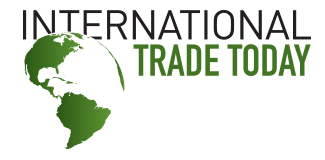Biden Faces Dilemma on Section 337 Battery Case; Continued Section 232 Tariffs Expected
Many expect trade policy under the Biden administration to be more worker-focused than consumer-focused, but many specifics remain undecided. “The jury is still out on what that pro-worker trade policy will look like in practice,” said Joshua Boswell, a lawyer at Crowell & Moring. Boswell spoke to a webinar audience Feb. 17 on the 2021 trade outlook and said such predictions don't tell you much about tariffs, free trade negotiations or trade remedies in and of themselves.
Boswell advised that when companies have a trade negotiating objective, or want a change to any policy, the burden is on those companies to show how their asks are connected to maintaining or growing the U.S. workforce. “Bring the right data to bear,” he said.
In addition to the worker focus, President Joe Biden is expected to try to use trade to convince other countries to change their environmental or labor practices, and in the case of the environment, it could be a tool to fight climate change. He said it's possible the climate change plank could be a dramatic change from what's been done before. Trade agreements “have touched on these issues lightly,” he said, referring to the environment and labor, but haven't really moved the needle on trading partners' practices. Boswell said it's attractive to use trade policy to address carbon emissions because trade “is one of the few areas … where the president will have significant unilateral authority.”
One of the first items on the new U.S. trade representative's to-do list, according to Crowell & Moring partner Josh Pond, will be whether to override the Section 337 import exclusion on electric vehicle batteries made by SK Innovation. LG Chemical won a case last week that claimed dozens of its employees, when they moved to SK, took trade secrets with them, and thus the batteries infringe on LG's intellectual property (see 2102120021). Pond, who specializes in intellectual property, said that in general, he expects the Biden administration to continue the trend of more Section 337 enforcement. He noted that the number of 337 complaints in 2020 were almost 50% more than in 2019. He said the rise of e-commerce has driven the growth in the number of cases for consumer goods, such as Hydroflask water bottles, Yeti coolers and Reebok shoes.
But in the LG Chem/SK case, the governor of Georgia is lobbying the White House, since 2,600 future jobs are at stake at a new SK plant, which would start pilot production in the second half of 2021 if not for the loss at the International Trade Commission. “Ford and VW have sounded the alarm, too,” he said, since these batteries are supposed to be used in an electric Ford F150 pickup and a Volkswagen SUV.
Biden has 60 days to either modify the commission's decree or effectively veto it, he said. Given the administration's green energy goals, Pond said, the case creates tension between the impulse to take a hard line on intellectual property and the desire to transform the transportation sector. As an aside, he said the safeguard on solar panels also creates that conflict.
While the ambitions on climate change are a 180-degree turn from the Trump administration, policy on trade with China will be more of a continuation, Boswell said. He said the view that tariff risks will disappear in this administration is wrong. He thinks tariffs will “be used aggressively” with China, though he did not specify on whether he thought there would be escalation in the Section 301 tariff levels, or whether he was referring to more use of trade remedies, or bringing back a China-specific safeguard.
Michael Bowen, an associate at Crowell & Moring, told the audience that the pace of antidumping and countervailing duty investigations quadrupled during the Trump administration, compared with the four years before he took office. He said there would be more use of countervailing duties for currency devaluation. He noted that the Commerce Department proposed to modify its rules on circumvention and evasion, in an attempt to streamline the process, including new requirements for requesting a new shipper review. But, he said, the Biden administration temporarily froze all rulemaking, so it's not clear whether those rules would be implemented.
On Section 232, he said, “most observers do not expect a fundamental shift in policy.” And on the Airbus tariffs, he said, most people expect those will stay in place as leverage to settle the aircraft subsidy dispute. The European Union has suggested that both sides lift the tariffs for six months to give negotiations a boost.
David Stepp, a partner at Crowell & Moring, talked about how CBP enforces AD/CVD, Section 301, and the ban on forced labor. He said the agency is “really taking a hard look at companies that are importing” goods subject to antidumping orders. He said they've launched 131 investigations, with more than 30 onsite verifications in the last full year.
On forced labor, he said that CBP has created a risk analysis and survey assessment questionnaire for companies to examine their supply chains (see 2012020046). He said CBP wants to know what companies are doing to prevent the import of goods made with forced labor, and is asking them to map the supply chain all the way back to the cotton fields. “You can imagine that’s quite an onerous task for companies,” he said. He noted that the Uyghur Forced Labor Prevention Act was reintroduced in the Senate recently (see 2101290045). He said he expects it to move in the next few months.



